Obesity And Kidney Disease
Obesity and kidney disease. Obesity participates in the genesis of CKD by predisposing to diabetic nephropathy hypertensive nephrosclerosis and focal and segmental glomerular sclerosis. A high body mass index is one of the strongest risk factors for new-onset CKD. Obesity influences CKD development among other factors because it predisposes to diabetic nephropathy hypertensive.
Obesity is a common contributing factor to the development of chronic kidney disease CKD. This increasing prevalence has implications for the risk of diabetes cardiovascular disease and also for chronic kidney disease CKD. Chronic inflammation increased oxidative stress and hyper-insulinemia shared clusters of risk factors as well as associated diseases eg.
In individuals affected by obesity a compensatory hyperfiltration occurs to meet the heightened metabolic demands of the increased body weight. There is evidence that obesity alone can lead to the development of kidney diseases including chronic kidney disease glomerulopathy and nephrolithiasis. Obesity can cause kidney disease both directly and indirectly and therefore the obesity epidemic in America is expected to increase rates of chronic kidney disease CKD in the US.
Insulin resistance hypertension and dyslipidemia. It increases the risk of developing major risk factors for Chronic Kidney Disease CKD like diabetes and hypertension and it has a direct impact on the development of CKD and end-stage renal disease ESRD. It increases the risk of developing major risk factors for Chronic Kidney Disease CKD like diabetes and hypertension and it has a direct impact on the development of CKD and end-stage renal disease ESRD.
Studies have confirmed that obesity is associated with increased risk of developing chronic kidney disease CKD. The pathophysiology of obesity-related kidney disease includes anatomic and hemodynamic alterations in the renal system. Obesity levels are rising.
Obesity has become a worldwide epidemic and its prevalence has been projected to grow by 40 in the next decade. This year the World Kidney Day promotes education on the harmful consequences of obesity and its association with kidney disease advocating healthy lifestyle and health policy measures that makes preventive behaviors an affordable option. It can also increase the risk of heart disease stroke and some cancers and seriously affect a persons quality of life self-esteem and emotional wellbeing.
Kidney function can be negatively impacted by obesity through several mechanisms either direct or indirect. While it is well established that obesity represents the leading risk factor for type 2 diabetes and hypertension awareness that obesity is associated with direct kidney damage independently of hypertension and diabetes is still not widespread.
Hidden consequences of the epidemic Obesity is a growing worldwide epidemic.
Obesity influences CKD development among other factors because it predisposes to diabetic nephropathy hypertensive. Supplementary Table S3 shows the characteristics of the 21 studies included in the meta-analysis 16 16Cao X Zhou J Yuan H Wu Liuxin Chen Z. The increase in intraglomerular pressure can damage the kidneys and raise the risk of developing chronic kidney disease in the long-term. In individuals affected by obesity a compensatory hyperfiltration occurs to meet the heightened metabolic demands of the increased body weight. Obesity has become a worldwide epidemic and its prevalence has been projected to grow by 40 in the next decade. People who are overweight or obese have 2 to 7 more chances of developing End Stage Kidney Disease ESKD compared to those of normal weight. Obesity has been pointed out as an important cause of kidney diseases. Obesity can cause kidney disease both directly and indirectly and therefore the obesity epidemic in America is expected to increase rates of chronic kidney disease CKD in the US. It increases the risk of developing major risk factors for Chronic Kidney Disease CKD like diabetes and hypertension and it has a direct impact on the development of CKD and end-stage renal disease ESRD.
Insulin resistance hypertension and dyslipidemia. Obesity is one of the strongest risk factors for new-onset chronic kidney disease and also for nephrolithiasis and for kidney cancer. Obesity is a potent risk factor for the development of kidney disease. This increasing prevalence has implications for the risk of diabetes cardiovascular disease and also for chronic kidney disease CKD. Hidden consequences of the epidemic Obesity is a growing worldwide epidemic. This year the World Kidney Day promotes education on the harmful consequences of obesity and its. Chronic inflammation increased oxidative stress and hyper-insulinemia shared clusters of risk factors as well as associated diseases eg.








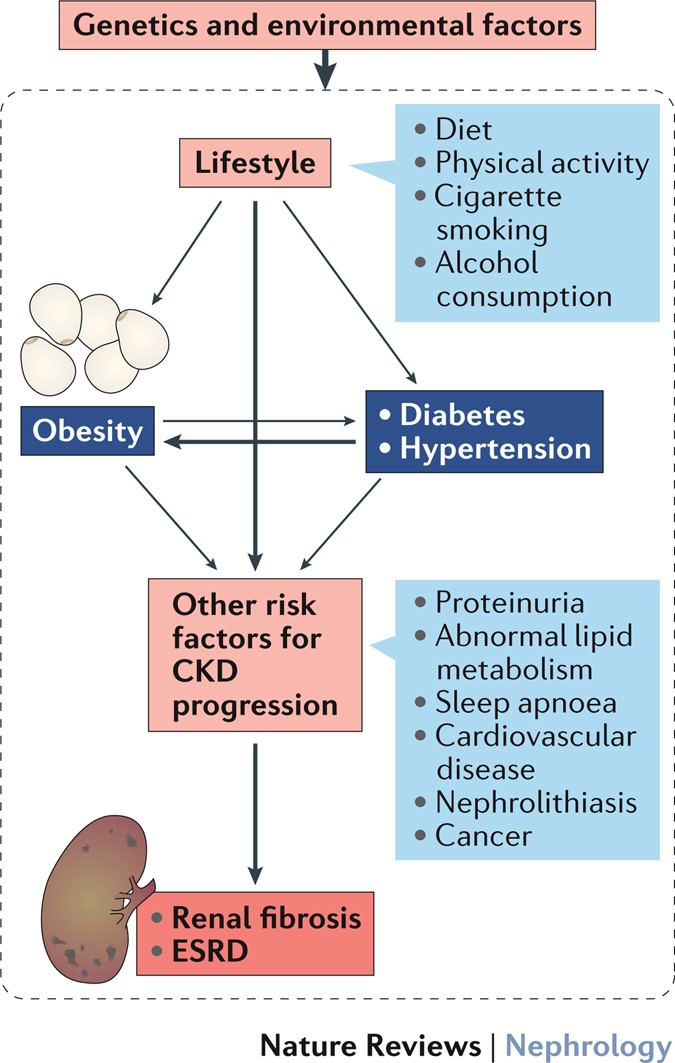
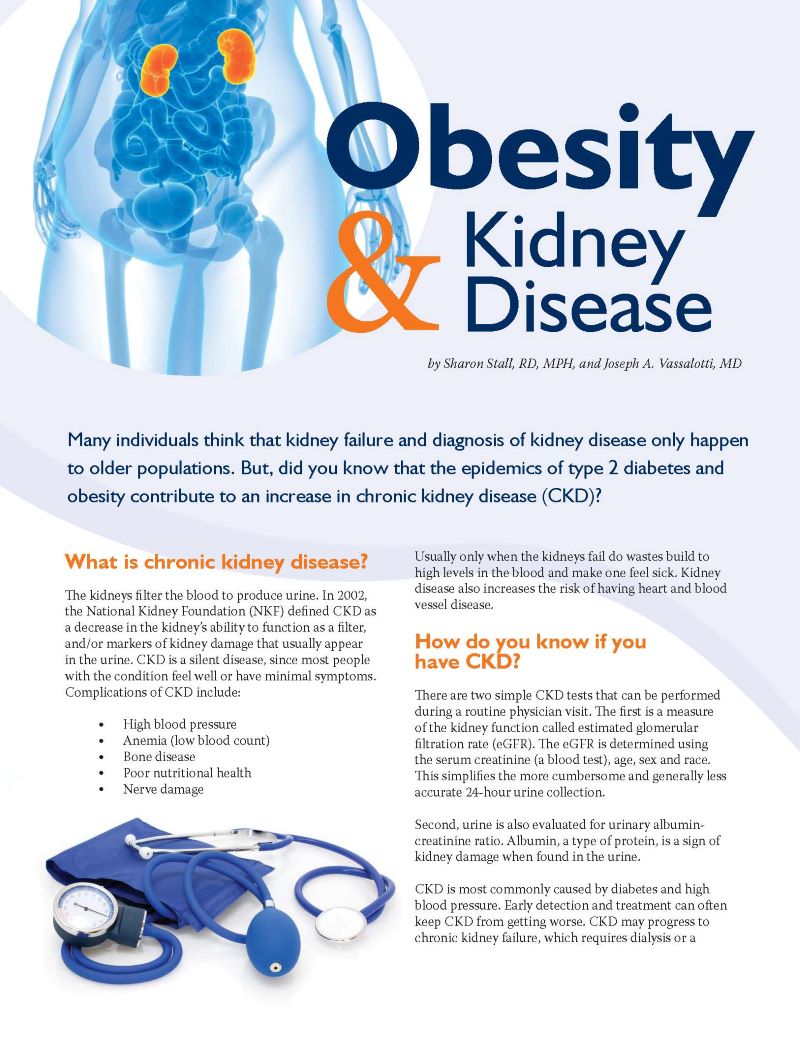
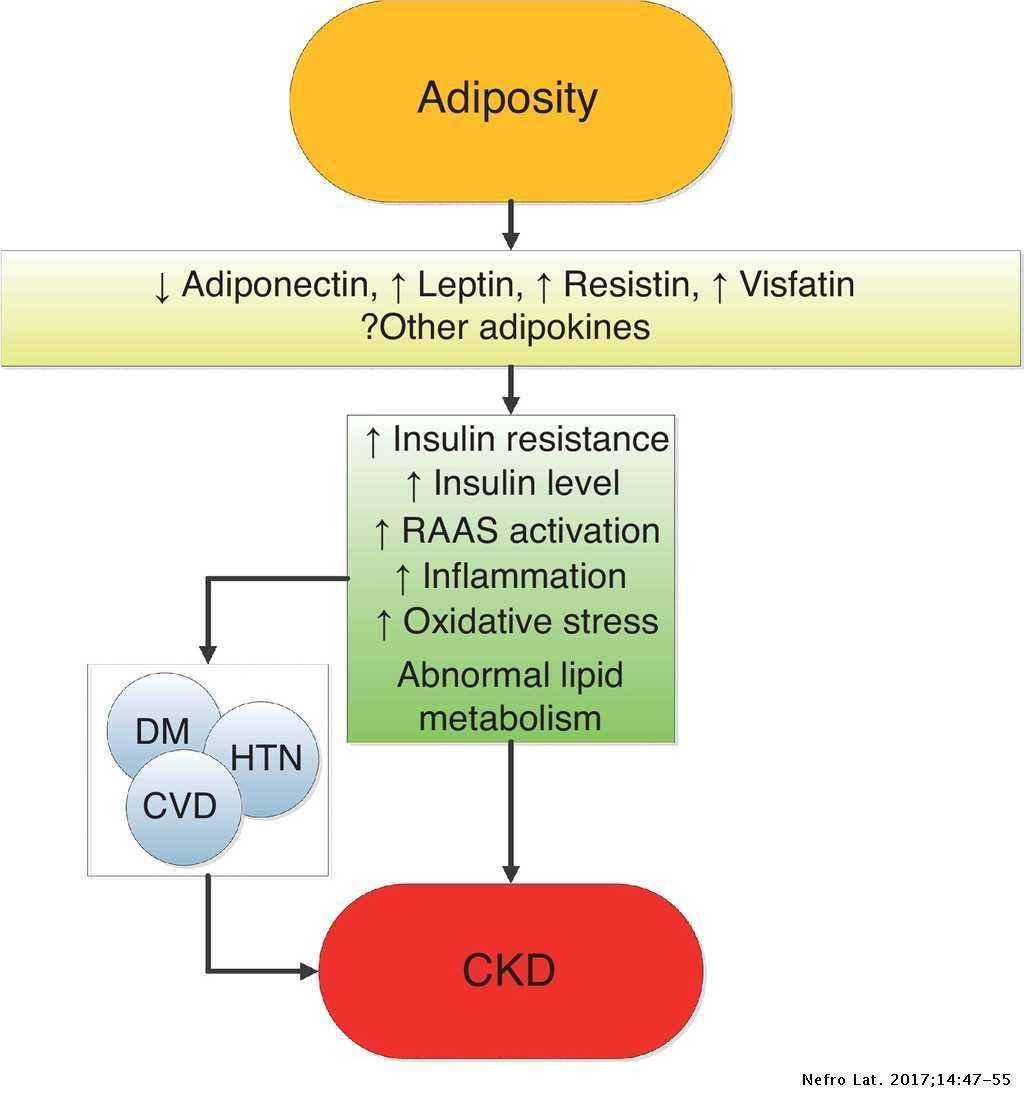






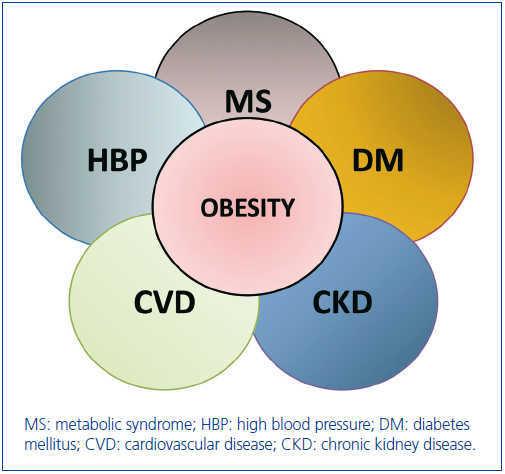




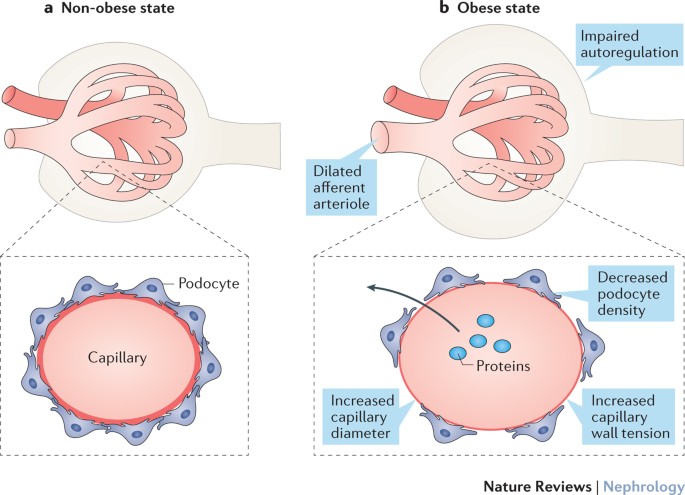
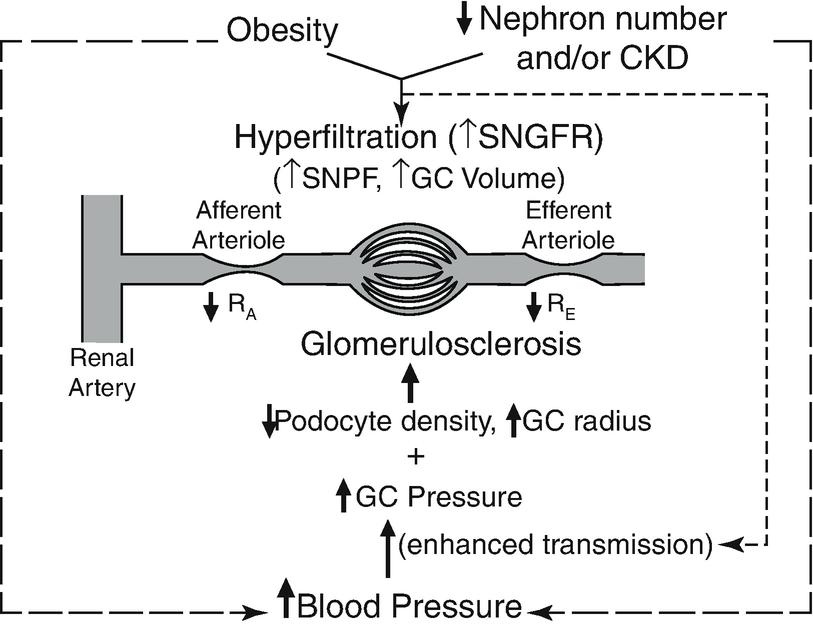










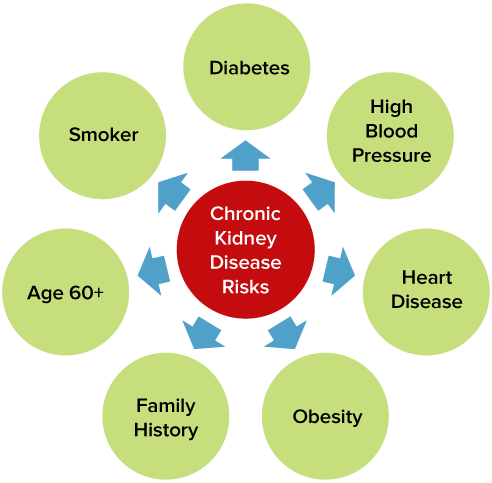

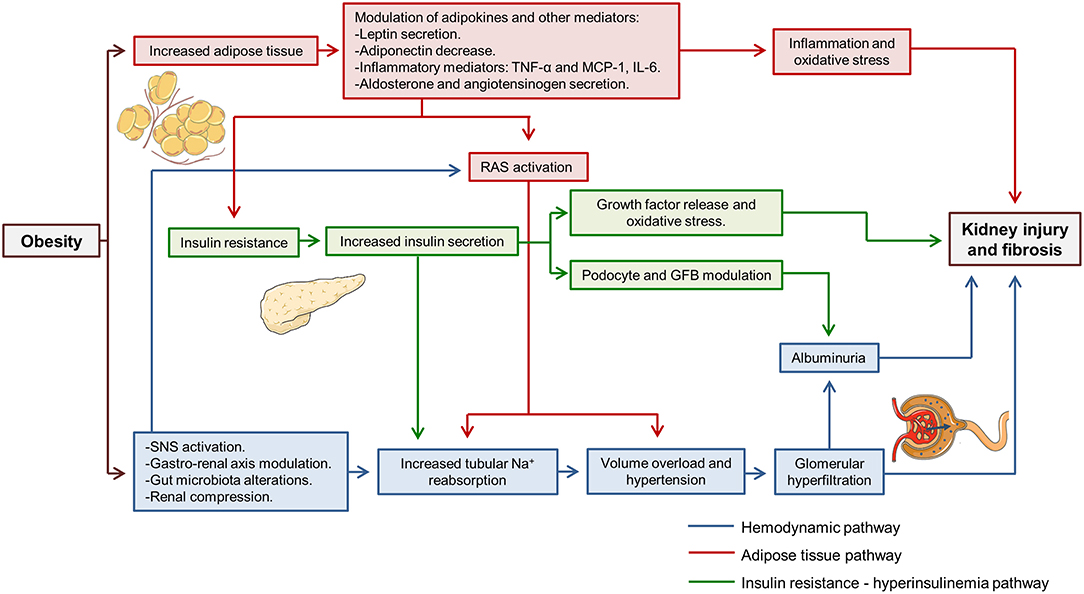






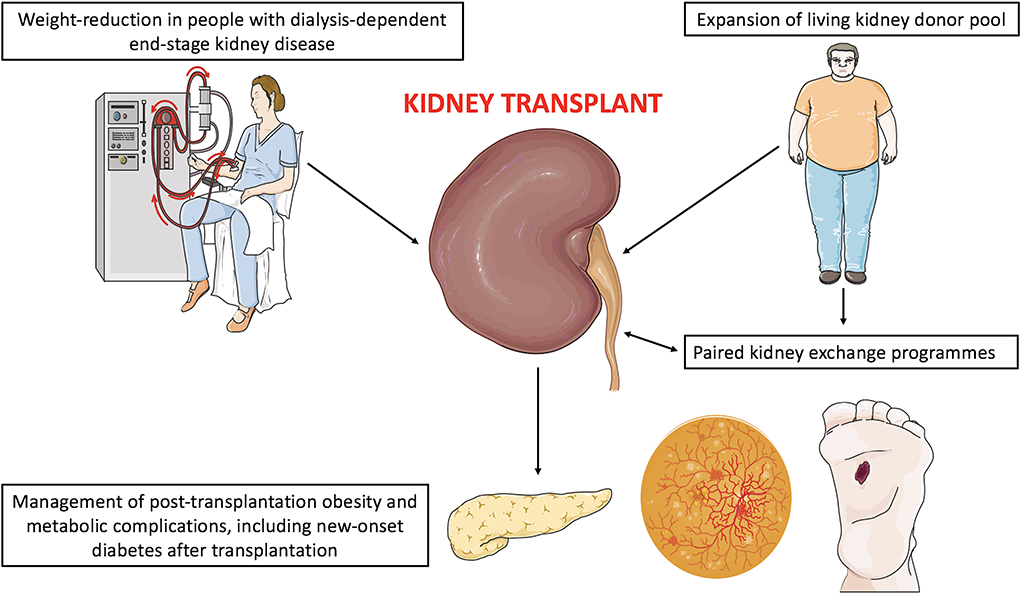


Post a Comment for "Obesity And Kidney Disease"